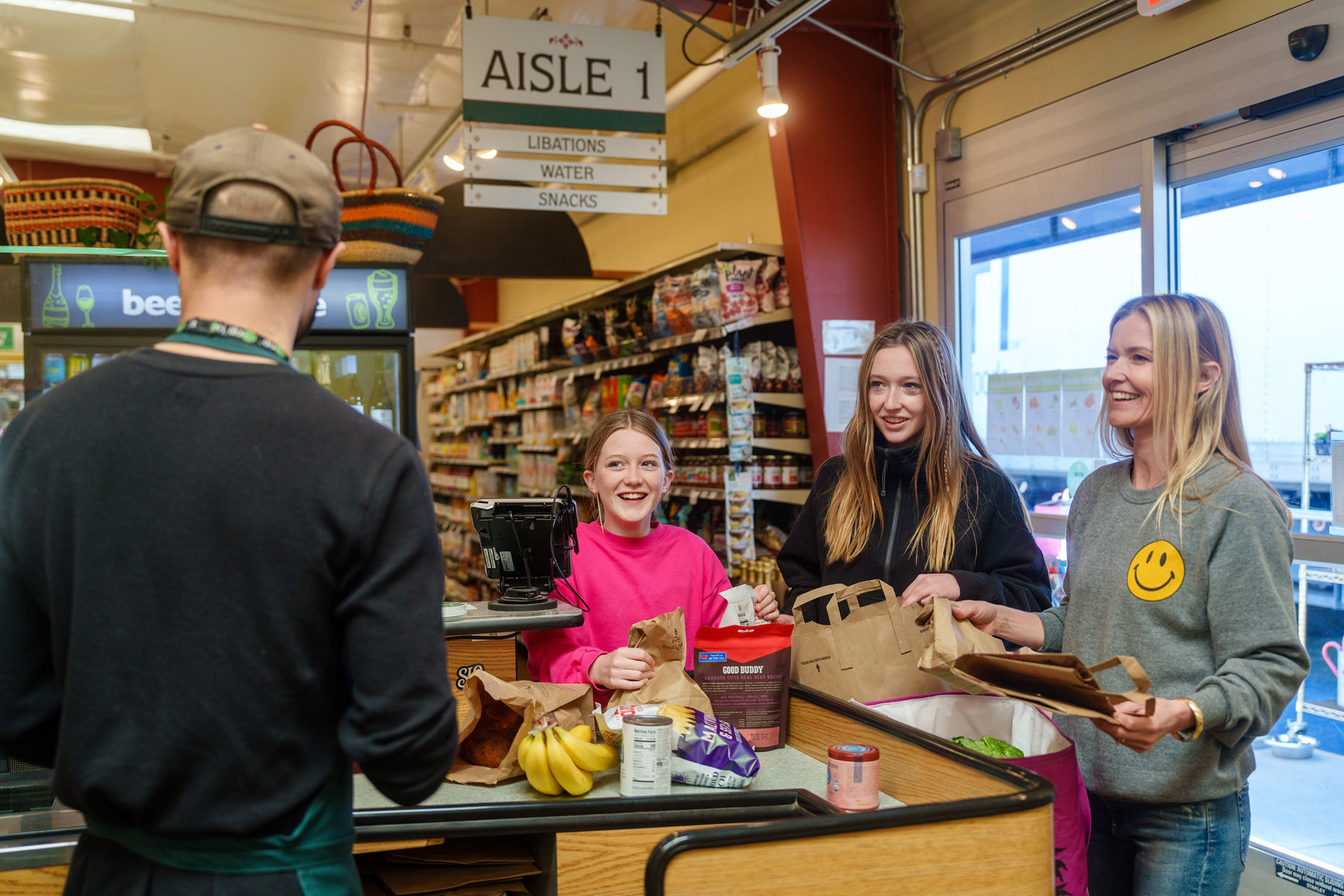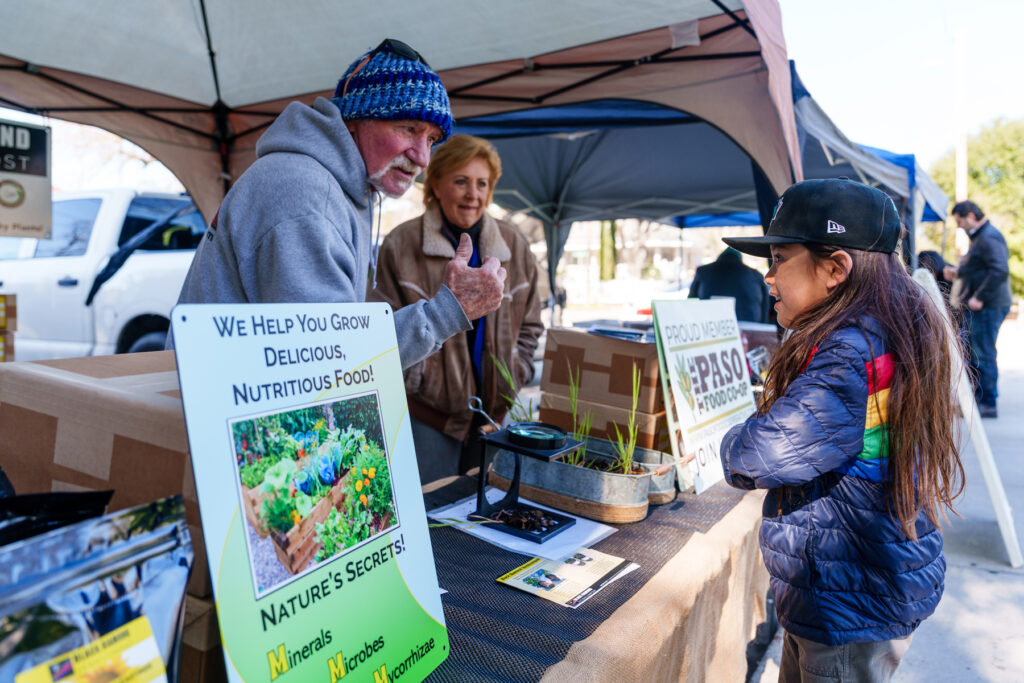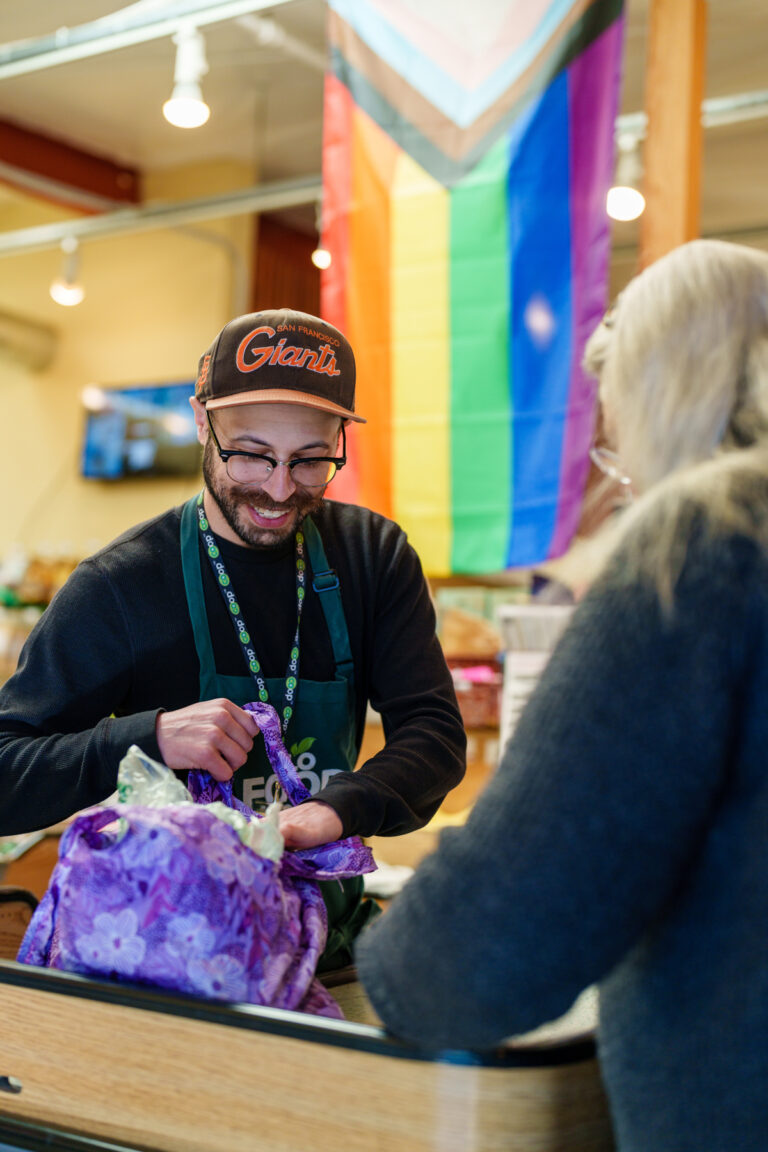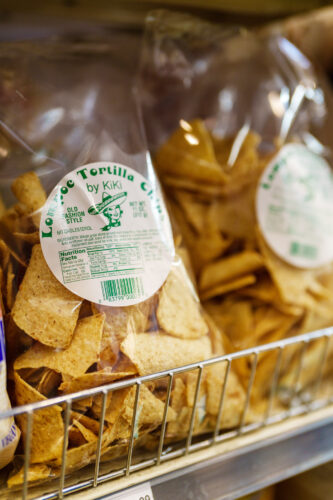
Full Circle: The Power of SLO Co. Food Co-Ops
Story by Annie Secrest
Photography by Stephen Heraldo
The local abundance of produce and desire to keep things “SLOcal” naturally inspired the creation of San Luis Obispo County’s first food co-op in 1979: SLO Food Co-Op. Nearly 200 years after the first co-ops were pioneered by those who valued their neighbors, the SLO Food Co-op and the soon-to-be Paso Food Co-op uphold the enduring values of community, access, diversity and abundance.

The food cooperative (co-op) movement started in the mid-1800s in response to a lack of quality food available to lower-income people. Pioneers of this innovative grocery structure believed anyone, regardless of class, gender, age or walk of life, should be able to buy quality foods for their families at honest prices. Co-ops have since become interwoven into the cultural fabric and they now promote more than just food. National brand Land O’Lakes, an agribusiness corporation, the Central Coast’s Farm Supply Co., a farmer-owned home and ranch supply store, and the local federal credit union SESLOC are all co-ops.
Co-ops enable customers to purchase ownership shares in the entity and become member-owners. These member-owners then have a legal say in how the cooperative is run, its purchasing practices and its products and services. Becoming a member-owner of a co-op ensures money will recirculate within the local economy. The co-ops share success because of member-owners’ donated time and work. Volunteers make up the board of directors of the SLO and Paso Food Co-ops, and volunteers carry out 100 percent of Paso’s operations — from fundraising campaigns to maintaining the financial books. Typically, cooperatives allow anyone to shop at their store but offer discounts and/or a patronage dividend, which is a member’s share of year-end profits based on the amount of purchases made over that same time period.

The guiding principle of this industry is community, which is paramount to all aspects of business. It means working with local growers and producers to sell an unexpected extra harvest or overabundance of seasonal fruit, seeking out under-represented businesses to feature prominently and proudly in their stores and giving back to owner-members by sharing excess profits through dividends or donations to local organizations. “Since profits are shared with member-owners, we only exist to help the community,” says Kasey Main, former Communications Coordinator for SLO Food Co-op.
And in that sense, it’s a complete circle. “We work to serve those who serve us,” says Kermit Komm, Paso Food Co-op Board Member. A fellow board member, Lydia Francis, adds, “Profits stay in the community, so this model is truly recession proof.”
Unlike chain grocers that focus on turning a profit to increase their store size and volume, co-ops return profits to the community. Putting people before profit allows them to focus on selling the seasonal offerings of farmers and growers, and thereby support the local economy. Establishing meaningful relationships with producers helps co-ops learn what products they are growing and when and what their experience is behind these efforts. Kasey has been on a quest to visit every farmer. “I want to know what they are going through so we can authentically tell their stories in our store.”
Selling in mass quantities is antithetical to co-ops, where forging connections is a priority, one that would undermine the business model of chain grocers. A personalized approach strengthens the economy by bolstering the producers’ crop and allows member-owners to have a say in what gets sold in their store. Both the SLO and Paso Food Co-ops stress diversity and representation as foundational pillars. They proudly feature products of Black-, LGBTQIA+- and Asian American Pacific Islander (AAPI)-owned businesses, and they work to uplift Indigenous, Latino and other under-represented voices.

“We are featuring these groups authentically and honestly by labeling the products, “inclusive trade,” explains Kasey. “We want shoppers to see the products and go directly to these businesses because we know we are not the authority on that community. We talk directly to the businesses to learn their frustrations, challenges and what they need. We’ve learned so much, including that certain businesses cannot make a product organic because cost increases disproportionately affect BIPOC, or it isn’t in that community’s culture to have organic ingredients.”
Over the course of 40 years, the burgeoning SLO Food Co-op has outgrown three spaces: the garage where it began, a subsequent small storefront and its current, upgraded and spacious location. With its 2% Tuesdays program, the co-op gives 2 percent of the day’s total sales to a different non-profit. Tuesdays tend to be their busiest day of the week.
The Paso Food Co-op movement was born out of a desire to centralize North County agricultural goods, affording daily access to items outside the limited hours of a farmers’ market. Hundreds of community members and businesses have already pledged support for the Paso Food Co-op and its proposed brick-and-mortar location, which would include a community kitchen. In a show of support for a North County facility, the SLO Food Co-op chose the Paso Food Co-op as one of its 2% Tuesdays recipients.
Regional co-op supporters view more people having access to fresh, locally grown food as a benefit to both consumers and producers. “Access to local food is more important than ever … for all segments of our communities,” says Lydia.
SIDEBAR
In collaboration with SLO Food Co-op, AAPI SLO, Rock Front Ranch and Mee Heng Low designed a limited-edition T-shirt, 100 percent of sales profits from which go to AAPI SLO.



